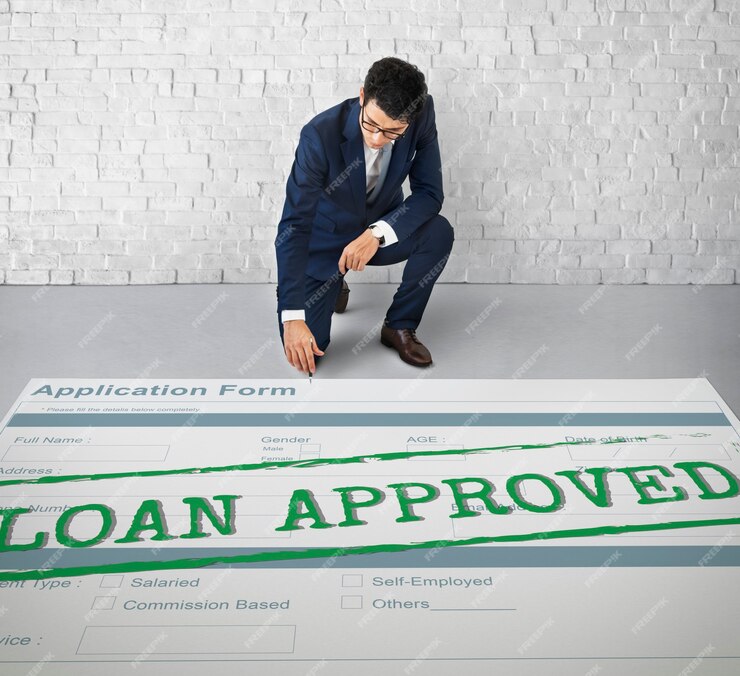A Complete Guide to Hard Money Lenders in California


Hard money loans are a popular financing option in California’s competitive real estate market due to the need for fast, flexible funding compared to traditional mortgage options. With California’s median home price exceeding $900,000, hard money loans offer a quick, asset-based solution for investors aiming to capitalize on property purchases, renovations, or flips. Key requirements from hard money lenders include a property in good condition, an LTV ratio between 60% to 75%, and compliance with California’s real estate regulations. Borrowers should evaluate factors like interest rates, fees, and lender reputation when choosing a hard money lender. Munshi Biz stands out as a reliable lender in California, offering tailored loan solutions, efficient processing, and market expertise to maximize investment returns.
FHA Construction Loan Down Payment: What You Need to Know


FHA construction loans are ideal for homebuyers and builders seeking to construct new homes with a low-down payment, typically around 3.5%. These government-backed loans are divided into two phases: the construction phase and the permanent mortgage phase. The down payment plays a crucial role in determining the overall loan value, and a higher down payment can lower the loan-to-value ratio, reduce interest rates, and increase borrower equity. Key factors influencing down payments include credit scores, loan amounts, property value, debt-to-income ratios, and builder approval by FHA. Borrowers should be aware of potential challenges such as construction delays, approval hurdles, and coordination between the construction and mortgage phases. Understanding these aspects can lead to better loan terms and successful real estate investments. Consult Munshibiz for tailored financial advice and support.
What Are the Benefits of Using Private Money Loans?


Private money loans are emerging as a highly attractive financing option for real estate investors, offering an average return of 11.6% in Q3 2023, compared to 5% for leveraged loans and 6.8% for high-yield bonds. This blog explores the key benefits of private money loans, highlighting their flexibility in loan terms, easier qualification process, faster funding, and broader asset options. Unlike traditional loans, private money loans focus on property value rather than credit score, ensuring faster approval and disbursement. Investors can finance various property types, including residential, commercial, and mixed-use properties, with no limitations. Additionally, collateral flexibility and cross-collateralization provide added security and higher loan amounts for borrowers. For investors looking to diversify and secure quicker, more flexible financing, private money loans offer a competitive edge, making them an ideal choice for real estate investment. Munshibiz provides tailored private money lending solutions, helping investors maximize returns with ease.
How to Choose the Right Hard Money Lender: 7 Key Factors


When selecting a hard money lender, it’s crucial to evaluate key factors such as loan terms and flexibility, credibility, expertise, and customer service. The loan terms, including interest rates and loan-to-value ratios, can significantly impact your investment strategy. Additionally, a lender’s market reputation and specialization in specific loans like bridge or construction loans can streamline the process and provide tailored solutions. Strong customer service, backed by timely assistance, and the integration of digital tools ensure efficient communication and quick loan approval. Lastly, transparency in fees and a clear breakdown of associated costs are vital to making informed financial decisions. Partnering with a reputable lender like Munshibiz, who aligns with your investment goals, ensures a smoother borrowing process and long-term success.
What Are the Risks and Rewards of Private Money Loans?


Private money loans provide flexible, fast financing for borrowers unable to qualify for traditional loans, especially in real estate. These loans, typically asset-based, offer quick approvals and adaptable terms, but often come with higher interest rates (7%-12%) and shorter repayment periods (6 months to 5 years). While they are ideal for borrowers seeking short-term financing, they also present risks, such as lack of consumer protection, potential fraud, and collateral loss if the borrower defaults. Borrowers and lenders must weigh the benefits of faster, more accessible funding against the risks associated with limited regulation and potential financial strain. Partnering with a trusted financial advisor like Munshi Biz can help navigate these challenges effectively.
What are the Points on a Hard Money Loan?


Hard money loan points are upfront fees charged by lenders, typically ranging from 1% to 5% of the loan amount, and play a crucial role in determining the total cost of borrowing. These points include origination fees, which cover loan processing, and discount points, which help lower interest rates. While paying points can reduce monthly payments and offer favorable loan terms, they require an upfront cost that impacts cash flow. Borrowers can negotiate points with lenders to reduce costs, especially if they have a strong credit history or experience in real estate. Understanding how points affect loan costs helps borrowers strategically plan their financing, aligning it with long-term goals.
Understanding the Basics: Selling a Home During a Divorce


Selling a house during a divorce can be a practical way to divide assets and move on. This blog outlines key steps to simplify the process, including reaching an agreement to sell, staging the home, understanding legal implications, and choosing a neutral real estate agent. Whether you’re in a community property or equitable distribution state, it’s essential to know how the division of assets works. Legal guidance and open communication are crucial for a smooth transition. Selling the home marks a significant step towards starting fresh, and professional assistance can make the process less daunting. Contact us for expert advice and support.
FHA Loans for a Second Home: Requirements and How to Qualify


Yes, you can secure an FHA loan for a second home, but specific requirements must be met. Your second home must be at least 100 miles away from your primary residence, and you’ll need a credit score of at least 580 to qualify for a 3.5% down payment. FHA loans offer lower down payments, more lenient credit requirements, and potential tax benefits, making them ideal for second homebuyers. However, you’ll need to prove a legitimate reason for needing a second home, such as job relocation or family expansion. Consult a mortgage lender to explore your options and maximize your chances of approval.
Choosing Between FHA 203(k) and 203(b) Loans: What You Need to Know


The FHA 203(b) loan is ideal for move-in-ready homes requiring minimal repairs, offering lower interest rates, faster closing, and lower costs. On the other hand, the FHA 203(k) loan is tailored for homes needing significant renovations, combining the mortgage with repair costs into one loan. While 203(k) loans come with higher interest rates and longer closing times, they cover essential and structural repairs. Choosing between these loans depends on the condition of the property and your renovation needs. Consult a professional lender to determine which FHA loan best suits your financial situation and home purchase goals.
Everything You Need to Know About FHA 203(b) Loans for First-Time Buyers


The FHA 203(b) loan, insured by the Federal Housing Administration, is designed for first-time homebuyers seeking affordable financing. With a low down payment of 3.5%, flexible credit requirements, and affordable mortgage insurance, this loan makes homeownership accessible, even for those with lower credit scores. Ideal for move-in-ready homes, the loan covers essential repairs like roof or HVAC upgrades but is not suited for extensive renovations, which require an FHA 203(k) loan. Though it comes with closing costs and mortgage insurance premiums, the FHA 203(b) loan remains a popular choice for buyers who need fast, low-cost financing. Contact an FHA-approved lender like Munshi.biz for expert guidance.
